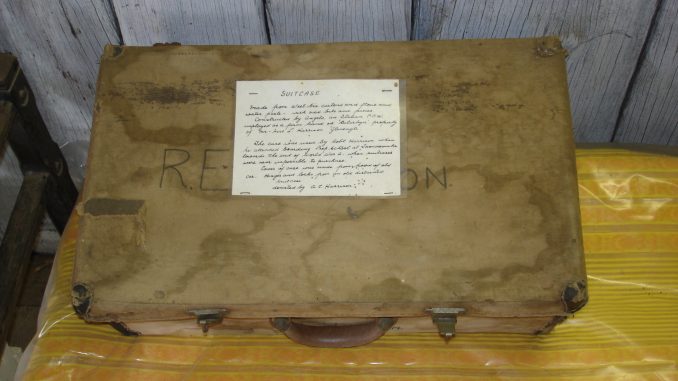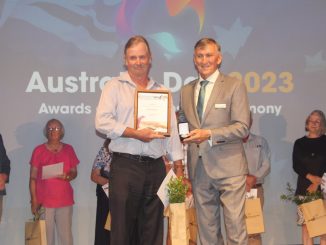
A small suitcase made from Weet-Bix cartons is on display at the Beaudesert Museum.
It is the work of Italian prisoner-of-war Angelo, who worked as a farmhand on the Bilarabyn property of R L (Les) and Sheila Harrison of Gleneagle during the Second World War.
The Italians were a war-weary nation, and pictures of Australian troops marching 40,000 Italians into captivity with only a sprinkling of guards, prompted posters such as: stop dragging my rifle along the ground or I won’t let you carry it.
Some of these prisoners were transferred to Australia.
Angelo and a couple of others lived in a small cottage up on the hill at the Harrison farm, doing their own cooking.
Once every three weeks an Army canteen came around and Mr. Harrison bought a 22 lb (10 kg) case of spaghetti for his workers. Blankets were supplied by the Government.
Most of the Italians were rough country boys, except for Angelo, who liked the finer things of life; making wine from banana skins and creating aesthetically pleasing things with his hands.
He spent the evenings working on the suitcase, a luxury item during war years.
Twelve year old son, Robert Harrison, quickly learnt to communicate with the POWs and when they needed to see a doctor, dentist or go to Mass, Robert was sent with them as interpreter and unofficial ‘guard’.
However, the Italians were amiable and content to leave the battlefields behind, never wanting to escape.
To make the suitcase, Angelo glued weet-bix cartons together with flour and water and covered them with khaki fabric from the canopy of an old Hupmobile. The hinges and locks were recycled from an old discarded suitcase.
When Robert Harrison went away to boarding school in 1946, he took the suitcase with him to hold his belongings.
From 1943 till the end of the war, approximately 22 Italian POWs worked on farms in the Veresdale district alone.
Not wanting to leave at war’s end, it is believed that thousands disappeared into Italian communities in Australia.





